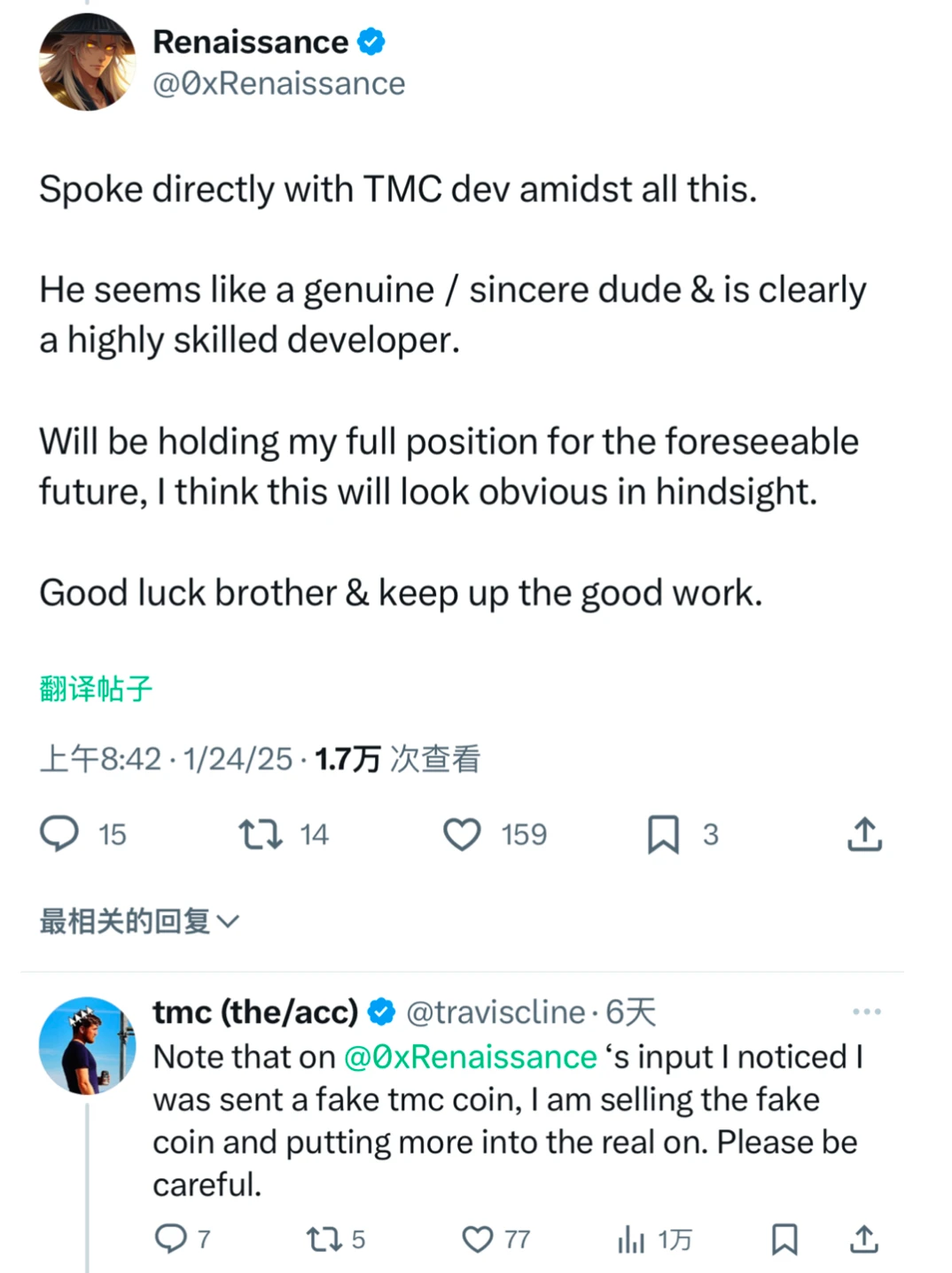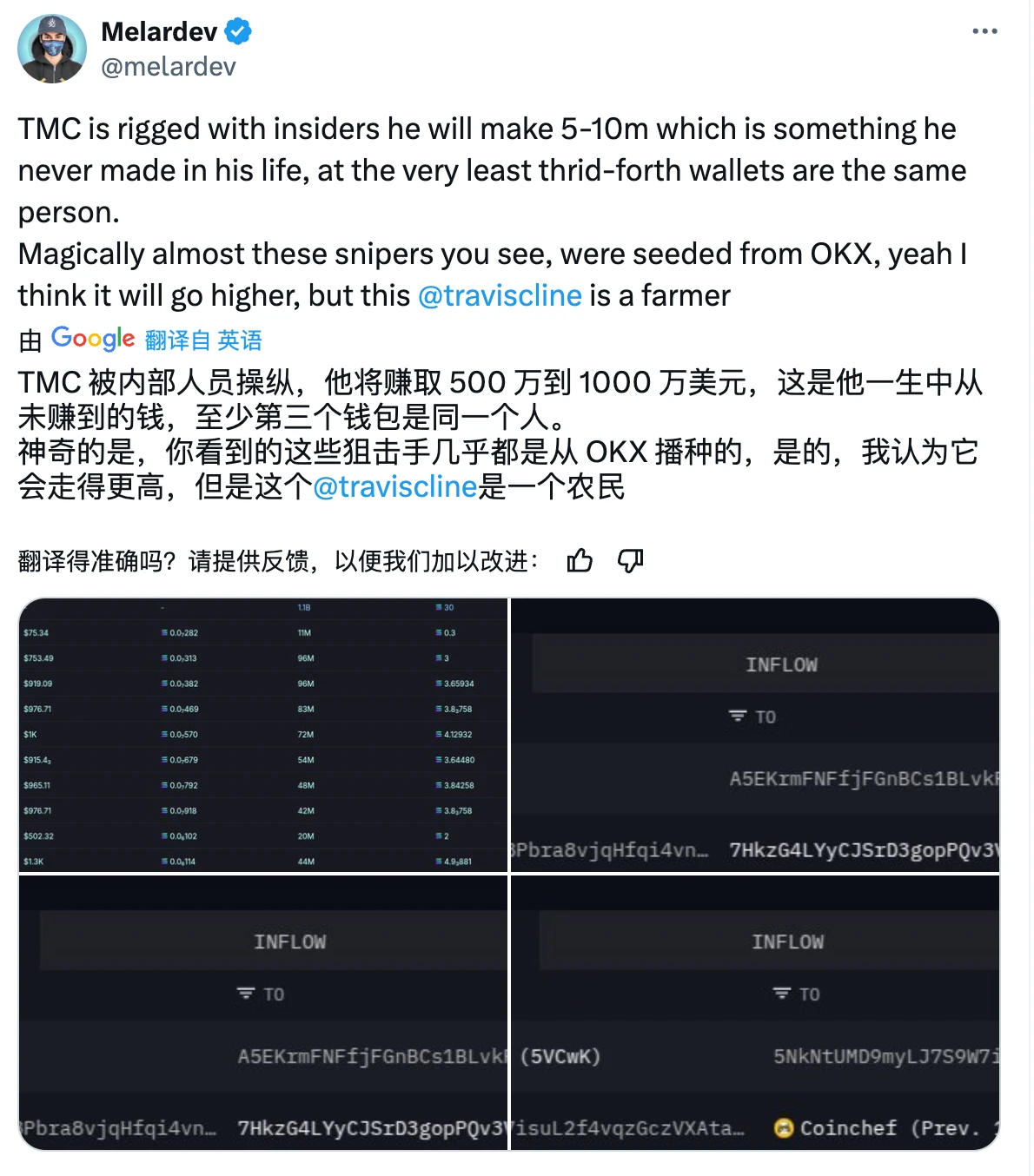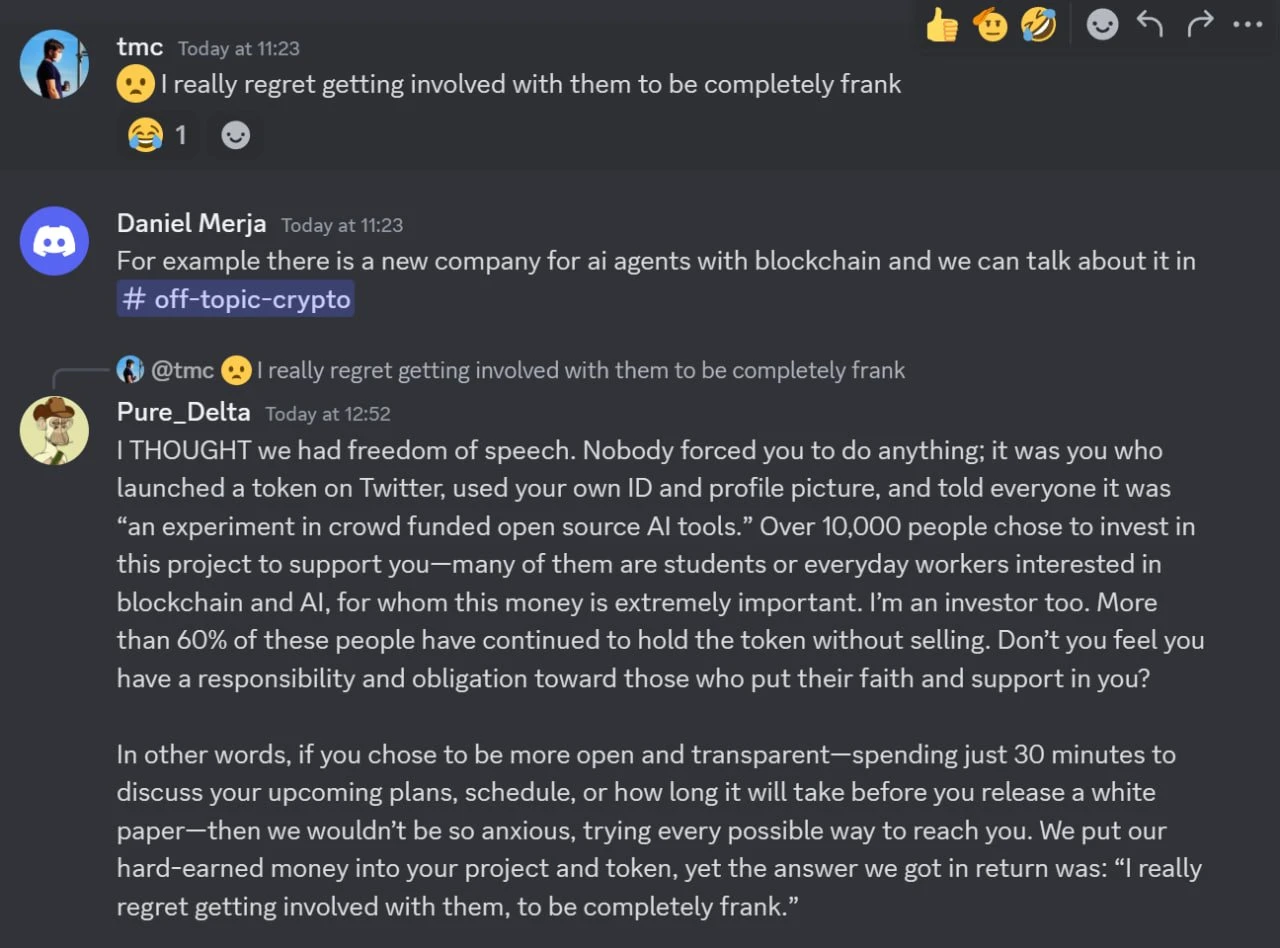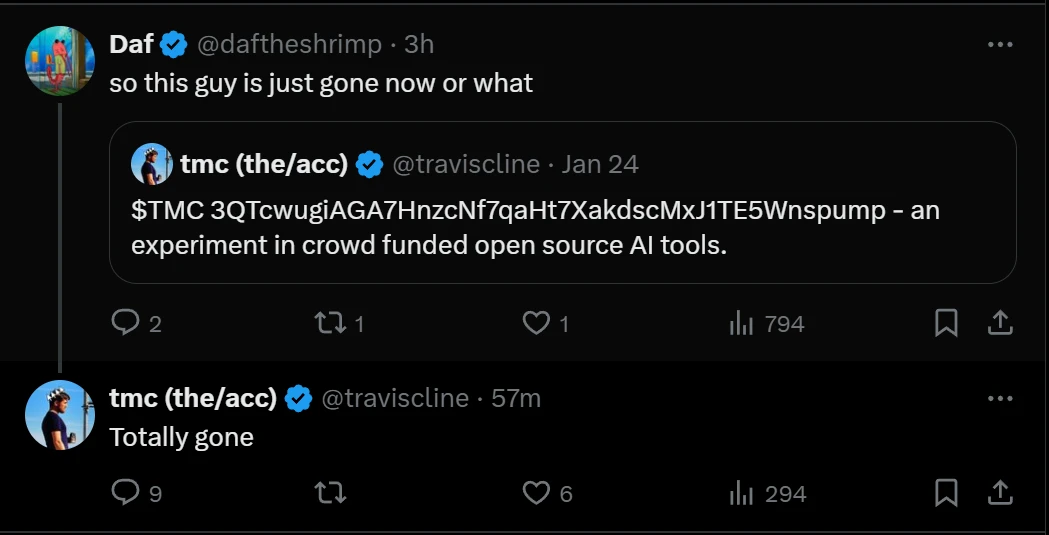Author: Dorian
"This has been the darkest 6 days of my life." The voice of single mother Violet still trembles. The 400,000 education fund she prepared for her daughter has dwindled to less than 30,000 after trust collapsed—this AI scam, lured by the halo of Nvidia technology, is undermining the foundational trust in the crypto world.

The Scam's Timeline
The Perfect Hunt of the Tech Butcher
On January 24, 2025, a tweet ignited the crypto community. Nvidia core engineer Travis Cline (@traviscline) announced a token called TMC Corp (TMC).
His resume is impeccable: LinkedIn shows he is not only a core member of the Nvidia AI team but also a founding engineer of the acquired Brev.dev; his GitHub account has 5,500 stars, and the open-source project langchaingo is revered by developers. Thousands of investors quickly flocked in, pushing TMC's market cap to over $20 million. However, Travis soon deleted the tweet, causing TMC's price to plummet in a short time.
Not long after, Travis boldly announced on Twitter: "TMC—A revolutionary experiment in crowdfunding open-source AI tools." People realized this was not a meme coin but an open-source AI tool project funded by a core member of the Nvidia team. Meanwhile, crypto KOL @OKRenaissance verified through private channels with Travis himself that the token was indeed issued by him. Once everyone knew TMC was issued by Travis, it was frantically bought up in the market, with its market cap soaring to over $30 million.
Just when everyone thought they had invested in a promising AI project, the situation took an unexpected turn. Several early buyers began to dump their holdings, and multiple early purchase addresses started selling off in large quantities, with incomplete statistics showing profits exceeding $3 million. "This is not a mistake; it's a meticulously designed harvest," on-chain detective @MelarDev discovered that these operations were likely premeditated. Many victims also ended up buying fake TMC tokens because hackers sent fake TMC tokens to Travis's wallet, and Travis immediately dumped all the fake TMC tokens, using only a small amount of SOL to buy back the real TMC tokens, while the remaining SOL stolen from victims was deposited into a centralized exchange, lining his own pockets.

On-chain detective's tracking tweet
After this, dozens of investors tried various channels but received no response from Travis. When investors flooded into Discord to question him, Travis rudely removed these people from the channel and deleted all their messages, leaving behind a remark: "Regret dealing with crypto people," and then disappeared.

After the deed was done, he escaped unscathed
By this point, TMC's price had fallen over 94%, nearly to zero.
"Nvidia's name is more effective than any white paper"
After going dark, Travis even recently mocked on Twitter that he had left the project. Investors left in disarray were left to pay for his harvest.
Klose is a recent college graduate who has been working for less than a year. He invested his hard-earned money into TMC, believing it was a crowdfunding project launched by a core Nvidia developer, expecting there would be a real product behind it. He gradually purchased $11,000 worth of TMC tokens, and as of today, he has lost over 90%. He told us he doesn't even know how to pay for next quarter's rent.
Violet is a saleswoman in a traditional industry and a mother of a 3-year-old daughter. She learned to buy TMC on the Solana chain for the first time because she saw Travis's LinkedIn resume and believed that he would continue to support and develop his crowdfunding project. In just 6 days, she lost over $50,000 on TMC tokens, which is her entire salary and sales commission for a year and a half. She now relies on medication to sleep normally.
Roger is one of the largest individual investors in the TMC project and also the biggest loser. In Roger's words, he has made many investments in both primary and secondary markets, and while he doesn't mind if a project fails after trying hard, that's the risk of innovation. However, innovation and fraud are two different things. Tens of thousands of people chose to support you with real money, and you delete their messages, kick them out of the community, refuse to communicate, and profit from dumping tokens—that's outright fraud.

Direct statement: I am out
Roger stated that if his and other TMC holders' reasonable demands continue to go unanswered, he and other TMC holders in the Bay Area will protest at Nvidia's Santa Clara headquarters and are prepared to unite many $TMC defrauded investors to contact lawyers to initiate a collective lawsuit against Travis.
The Crossroads of the Crypto Industry: From "Meme Frenzy" to Value Reconstruction
This incident coincides with a critical transformation period in the crypto industry: the speculative frenzy of meme coins has not yet subsided, but a batch of value-oriented projects represented by AI, DePIN, and on-chain computing are attempting to reshape industry logic. Travis Cline's scam precisely hit the weak point of this transformation period.
The "open card game" of meme coins: Dogecoin, Pepe, and other meme projects never hide their entertainment attributes; investors are well aware they are participating in a high-risk speculative game. However, Travis Cline's fraudulent behavior is essentially a betrayal of the AI open-source community. He leveraged his technical reputation on GitHub (5,500 stars, open-source project langchaingo) to package the scam as "crowdfunding open-source AI tools." The harm of this behavior far exceeds ordinary meme speculation because it destroys the most scarce resource in the crypto industry—trust in technological innovators.
Open-source projects should symbolize the democratization of technology, but this incident exposes a harsh reality: the halo of tech elites can become a cover for fraud. If similar incidents occur frequently, investors will gradually become wary of "developer-driven" innovative projects, making it difficult for truly valuable grassroots projects to secure funding.
Currently, many teams are exploring real value through directions like "on-chain AI model training" and "decentralized computing markets." If similar fraudulent incidents are allowed to spread, these efforts may be labeled as "scams."
The crypto industry is in a transition from a "casino" to a "toolbox." Only by resolutely resisting technological fraud and supporting genuine innovation can the industry emerge from the bubble and gain recognition from mainstream society.
Technology for Good Requires Industry-Wide Bottom Line Protection
The Travis Cline incident is a mirror reflecting the challenges faced by tech giants, the open-source community, and the crypto industry: when technological authority is abused and innovative ideals are tarnished, the foundation of the entire ecosystem will be shaken. We call for:
· Nvidia: Learn from this incident and incorporate employee ethical reviews into the technical capability assessment system;
· AI developers: Rebuild societal trust in open-source innovation through transparent actions;
· The crypto industry: Build an "anti-fraud firewall" to provide a survival soil for value-oriented projects.
Only in this way can technology truly become the flame that drives human progress, rather than a wildfire that burns trust.
免责声明:本文章仅代表作者个人观点,不代表本平台的立场和观点。本文章仅供信息分享,不构成对任何人的任何投资建议。用户与作者之间的任何争议,与本平台无关。如网页中刊载的文章或图片涉及侵权,请提供相关的权利证明和身份证明发送邮件到support@aicoin.com,本平台相关工作人员将会进行核查。




